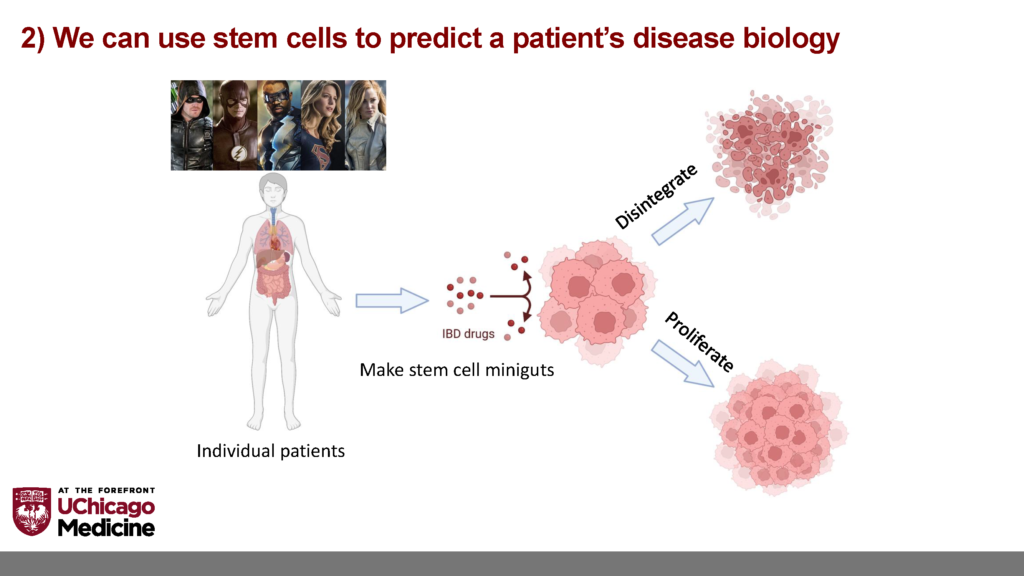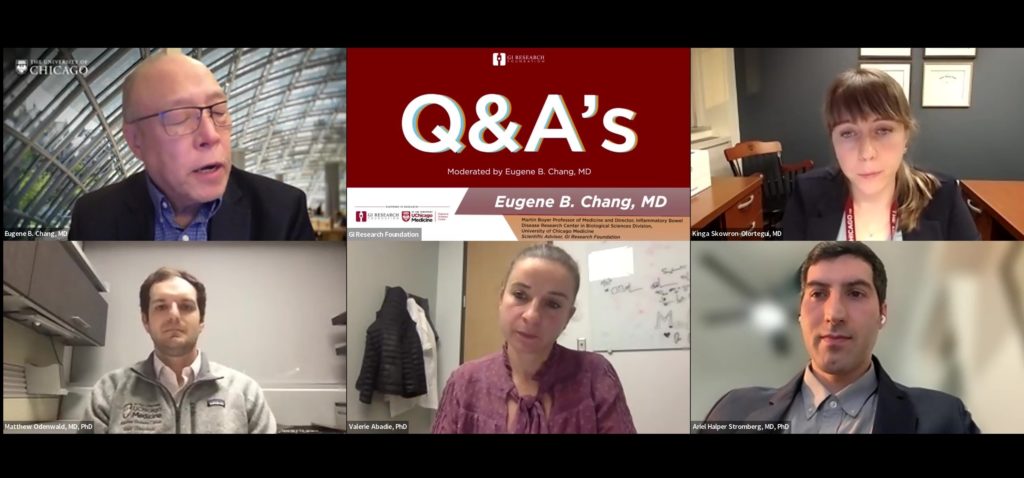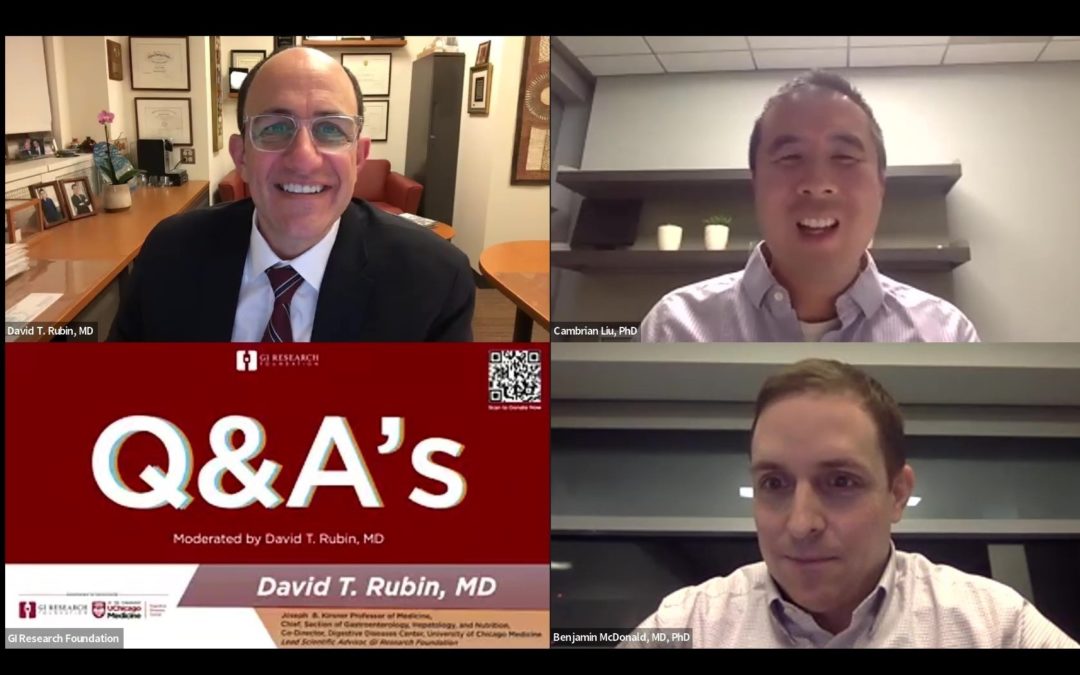Research presentations included basic, translational, and clinical science updates across digestive diseases. Cambrian Liu, PhD, Research Assistant Professor of Gastroenterology, Hepatology and Nutrition at the UChicago Medicine presented his research on the regenerative potential of stem-cell transplants.
Research presentations included basic, translational, and clinical science updates across digestive diseases. Cambrian Liu, PhD, Research Assistant Professor of Gastroenterology, Hepatology and Nutrition at the UChicago Medicine presented his research on the regenerative potential of stem-cell transplants.

Presentation excerpt curtesy of Cambrian Liu, PhD and the University of Chicago
Dr. Liu explained, “We can now obtain stem cells by the millions from routine medical procedures, like colonoscopies, and grow them outside the body into ‘mini-guts,’ which are small replicas of the patients’ intestines.”
Liu and colleagues predict that someday, these stem cells will be modified and transplanted back into IBD patients’ intestines to heal and even replace diseased tissue. In addition, by exposing these ‘mini-guts’ to existing therapies, physicians may also be able to predict a treatment’s efficacy.
 Closing out the evening’s presentations, Kinga Skowron Olortegui, MD, shared her current work, a comprehensive review of decades of retrospective surgical research literature through the creation of a new Colorectal Surgery Outcome Database.
Closing out the evening’s presentations, Kinga Skowron Olortegui, MD, shared her current work, a comprehensive review of decades of retrospective surgical research literature through the creation of a new Colorectal Surgery Outcome Database.
Dr. Skowron Olortegui explained, “Thanks to the support of the GI Research Foundation, in the past year…I was able to complete the Master of Science in Public Health Sciences for Clinical Health Professionals here at the University…to prepare me to be a thorough and excellent clinical researcher.” Her new training inspired the launch of this prospective database, which will track colorectal surgical outcomes in real time, counteracting the potential bias that comes with retrospective analysis, and improving the quality of care for patients at UChicago Medicine in the process
University of Chicago Medicine Fellows and future GI leaders also presented research, including: Nathaniel Cohen, MBBS; Benjamin McDonald, MD, PhD; Matthew Odenwald, MD, PhD; and Ari Stromberg, MD, PhD.
Following the research presentations, Ashley Sidebottom, PhD, Platform Director at the University of Chicago Duchossois Family Institute, joined several UChicago Medicine faculty members for a live Q&A session, including: Valerie Abadie, PhD; Cambrian Liu, PhD; and Kinga Skowron Olortegui, MD.

